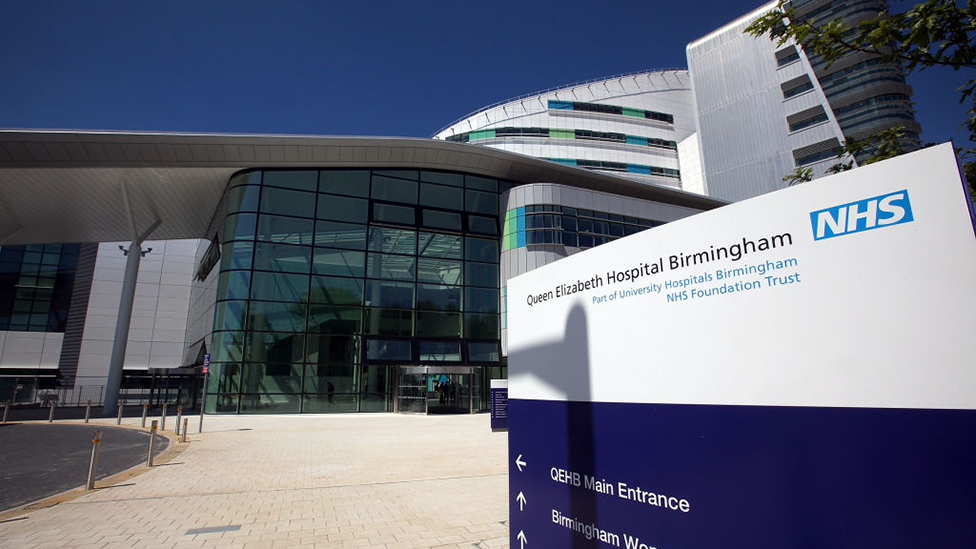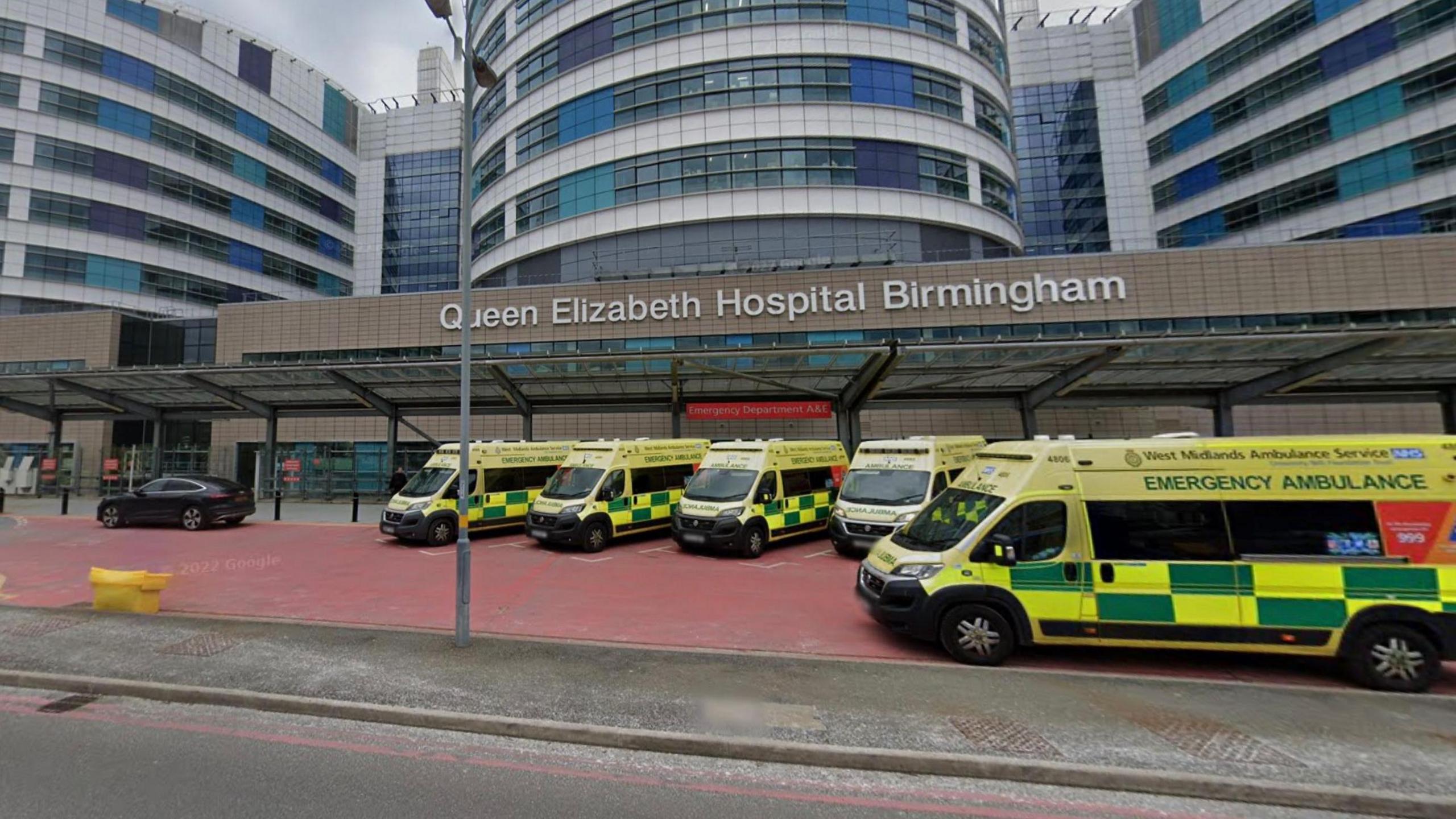Hospital trust £150m overspend sparks intervention

The hospital trust is one of the biggest in England
- Published
One of England's largest NHS trusts been issued with enforcement measures after some of its costs were found to be nearly £150m over budget.
University Hospitals Birmingham Foundation Trust (UHB) has been told by NHS England (NHSE) it had failed "to demonstrate effective control over expenditure", therefore breaching its licence conditions.
The trust also continued to "experience challenges" in relation to delivering urgent and emergency care, including delays to ambulance handovers, the NHSE report said.
The trust has agreed to take actions to address the problems including a medium term financial sustainability plan, but it has refused to comment on the NHSE findings.
UHB is comprised of the Queen Elizabeth Hospital, Heartlands Hospital, Good Hope Hospital and Solihull Hospital.
A document published by NHSE, external on 3 September stated the trust's pay costs had risen to £101.5m over budget while non-pay costs had exceeded £47.7m over budget.
According to NHSE, it had also failed to adhere to its 2024-25 deficit plan, reporting a £30.7m loss which had been £14.7m more than projected.
NHSE said the trust had "failed to demonstrate effective control over expenditure, as costs continued to rise month-on-month without alignment between finance and workforce planning".
The NHSE also said the trust had not "sufficiently" addressed concerns raised by an external auditor and had "repeatedly missed national financial reporting deadlines".
As well as breaching its financial conditions, NHSE said UHB had continued to face challenges in relation to delivery of urgent and emergency care.
A Care Quality Commission (CQC) report in August found leadership improvements, at the trust, but still needed to do more work to reduce waiting times, crowding and handover delays in the trust's three emergency departments.
NHSE also noted the trust had entered the national Maternity Safety Support Programme in 2023 and in light of a recent Care Quality Commission inspection, which rated UHB as Requires Improvement, it would remain in the programme.
As part of the enforcement undertakings, UHB has agreed to develop a medium-term financial plan and achieve a sustainable financial balance from 1 October 2026 onwards.
Get in touch
Tell us which stories we should cover in Birmingham and the Black Country
Follow BBC Birmingham on BBC Sounds, Facebook, external, X, external and Instagram, external.
- Published29 September

- Published22 August

- Published29 August
